Listed: South Australia’s hottest start-ups and scale-ups of 2023 including Pearler, Deep Liquid and MyVenue
AI sports drinks, AI weeding and cleaning up space junk are just a few of the exciting start-ups here in South Australia. Meet 25 businesses to watch.
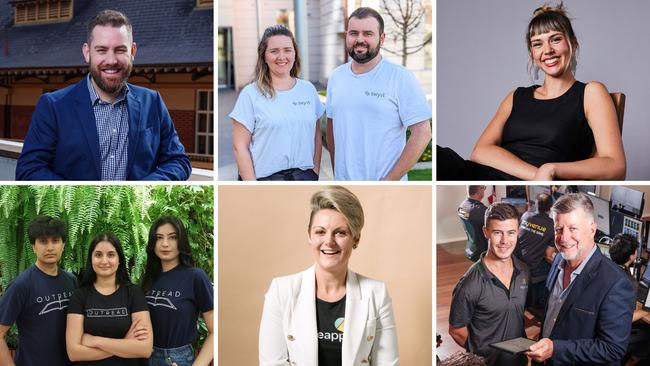
SA Weekend
Don't miss out on the headlines from SA Weekend. Followed categories will be added to My News.
One company is retrofitting bikes to make them high-performing electric vehicles, another is transforming hydrofoil surfing, some are changing how we approach agriculture, others how we operate in space, a few are looking at data … and a whole lot are embracing artificial technology (AI).
Welcome to a snapshot of some of our most exciting and interesting start ups and scale ups, compiled by advertiser.com.au in consultation with the teams at Lot Fourteen and Flinders University’s NVI (New Venture Institute) as well as other key players in the technology industry.
Today’s list is in no particular order but simply a celebration of a whole lot of people in South Australia doing a whole lot of interesting and innovative things.
We’ve divided the groups into the start-ups and the more established scale-ups, given many businesses are at very different stages of development.
But they all share two fundamental things: a great idea and the passion to make it happen.
Some of the 22 start-ups and scale-ups we featured in 2022 included Airspeeder, Fleet Space Technologies, EcoJet and Kindship.
For more details on how some of these start-ups began their journey and a wider look at innovation in South Australia, pick up a copy of this Saturday’s SA Weekend.
START UPS
Foil Drive
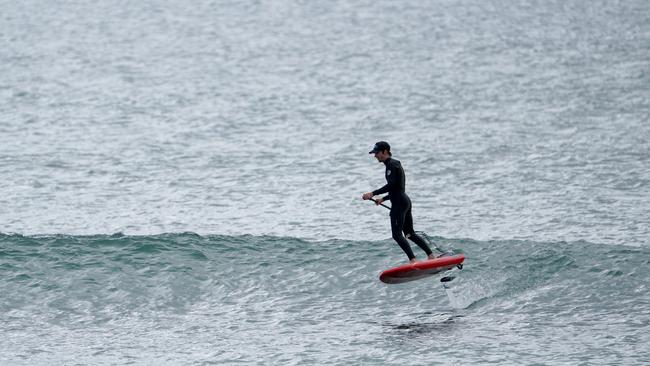
Foil Drive describes itself as “the world’s first retrofit electric assistance motor kit for Hydrofoil surfing”, combining traditional foiling with efoiling.
It says its innovative design preserves the feeling of purist foiling, while allowing riders to progress faster and ride more thanks to electric assistance, compatible with gear from any brand. It’s South Australia, driven by founders Paul and Ben, nearing three years of operation, is growing its team and plans to open a European HQ later this year.
“Follow us on our journey as we continue to innovate while proudly designing, manufacturing, and building our brand, right here in South Australia,” it says.
“Electrify your board, your foils, your way – that’s Foil Drive.”
Flux Robotics

Flux robots are designed to reduce or eliminate pesticide use for produce farmers.
Founded by farmer Jordy Kitschke, Flux has its roots in country South Australia and now supports customers with product in the field nationally.
The Flux robots use AI to “see” weeds in the crop before using either targeted spraying, robotic arms, or concentrated light sources to remove the weeds.
Attracting a team of engineers, farmers and investors has enabled Flux to bring commercial product to market in under two years.
Flux is now accelerating manufacturing operations, to meet the demand for its products on farms in time for the 2024 season.
TAV Systems
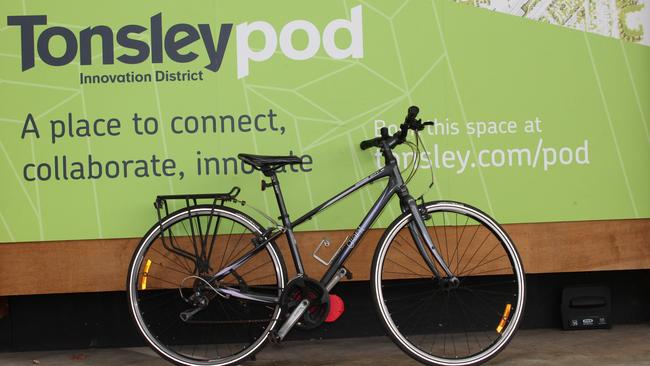
Based in the Tonsley Innovation District, TAV Systems says it is crafting robust and reliable “powertrain technology”, engineered and tested in South Australia, which can transform bikes, cargo bikes and scooters into electric bikes (E-Bikes).
They can install the powertrain kit on an existing bike to convert it into a “high performing electric bike”, or market a custom frame using the powertrain components.
They aspire to reach developing nations like India and contribute to their progress through the production of advanced E-Bike technology products.
The company says its commitment is twofold: to export Australian-built E-Bike technologies to the global market and to cultivate a resilient domestic industry.
“We also place a strong emphasis on fostering a positive work culture that supports and encourages the next generation to explore entrepreneurship and STEM careers,” it says.
“With a highly skilled team of engineers and technicians, state-of-the-art manufacturing facilities, and visionary founders, TAV Systems is poised to revolutionise the E-Bike industry.”
Outread
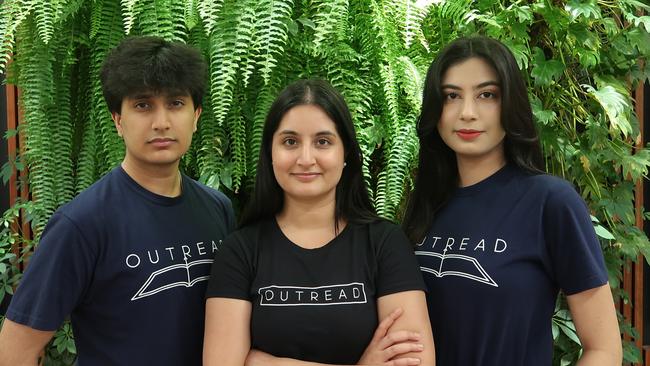
Outread aims to simplify cutting-edge research for businesses and individuals, using AI to summarise key insights from complex research publications.
The start up says its machine learning AI technology makes it easier for anyone to use knowledge for growth, development, and decision-making in both written and audio format summaries.
Backed by the likes of Techstars and Amazon Web Services (AWS), they say they have attracted executives from AWS, KPMG, and Google to integrate Outread into their information arsenal and the likes of big four accounting firms like KPMG are using the platform.
“It’s an exciting time for information and AI,” says chief executive Janhvi Sirohi.
“We’re now fundraising to really accelerate this growth.”
Pearler
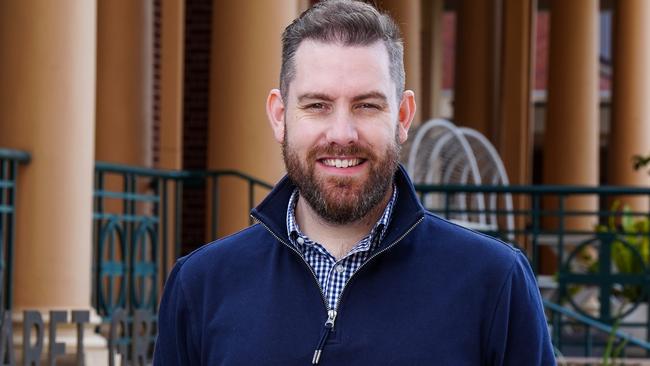
Pearler is a software start up that uses artificial intelligence to automate the handling of business questionnaires and recently announced it had secured $330,000 in pre-seed funding from the South Australia Venture Capital Fund.
Founded in late 2019, Pearler is the culmination of years of research, development, and innovation and the firm says its AI-based platform allows clients to efficiently respond to everything from Requests for Proposal (RFPs) and Requests for Quotes (RFQs) to cybersecurity checklists and grant applications.
Pearler founder and chief executive, Robin Garnham said the pre-seed funding would allow him to work full-time on building the business and engage the services of a dedicated business development manager to drive commercial growth.
“Our focus is to keep growing the number of customers using our platform in the years ahead,” he said.
“Through ongoing development of Pearler, we believe we can help our clients achieve even more significant business outcomes.”
At its heart, Pearler is described as a collaborative tool that uses machine learning (ML) and generative AI to optimise responses to a wide range of questions.
Outhire
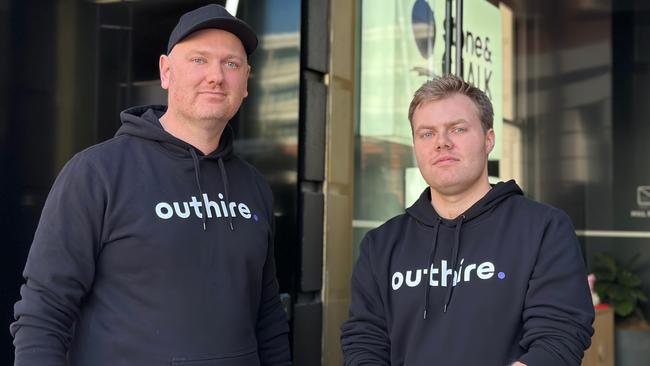
Outhire aims to introduce a fresh approach to talent acquisition by enabling businesses to craft targeted job ads that integrate with social media timelines, thereby connecting companies with the best talent across the job market.
Leading the charge are co-founders Matt Bauerochse and Will Russell; the pair previously known for the creation of Australia’s first digital driver’s licence, mySA GOV.
They also played significant roles in the development of Sine, a South Australian start up that garnered international attention before its acquisition by Honeywell.
Now, with Outhire, Bauerochse and Russell bring their experience to the table, merging innovative technology with everyday accessibility.
IonDrive Technologies

IonDrive Technologies, a wholly-owned subsidiary of Southern Gold Ltd specialises in mineral exploration projects in South Korea, focusing on lithium and critical minerals.
The company’s mission is to lead innovation in battery technology by addressing lithium-ion battery limitations through a number of key projects including offering a cost-effective and abundant alternative to lithium-ion batteries; improving energy density and focusing on the sustainable and efficient recovery of valuable battery metals.
The company aims to transition innovations from lab research to pilot scale and full-scale industrial production through partnerships with battery manufacturers.
Its collaboration with the University of Adelaide involves a $2.5 million commitment for battery R & D in the uni, which grants it exclusive rights to license and acquire intellectual property from these projects.
This partnership, alongside battery researchers, enables it to establish pilot manufacturing facilities in Australia, which it says will expand cathode active material production and operate a battery recycling pilot plant.
IonDrive Technologies actively participates as an industrial partner in multiple Australian Research Council (ARC) projects led by University of Adelaide researchers.
Economical Energy
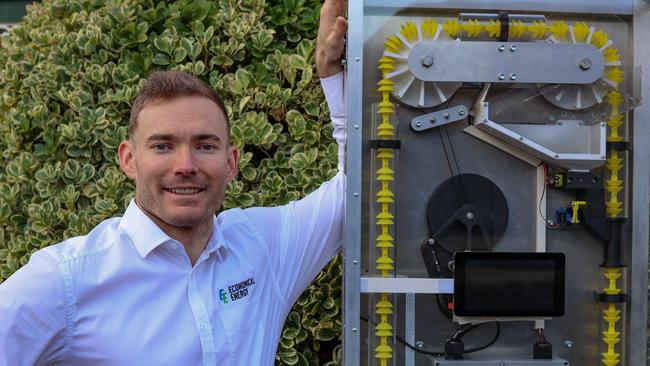
Economical Energy is developing a new, long-duration energy storage technology, to make renewable energy cheap, clean and continuous.
The technology is called the VIPER and is similar to pumped hydro, which it says accounts for nearly all of global electricity storage.
The company says the main differences to pumped hydro is that it has “a negligible ecological footprint, that it doesn’t need mountains, so it can be built anywhere it’s needed, and that it uses rocks instead of water.
“Compared to batteries for energy storage, it has negligible embodied CO2, creates negligible landfill, and won’t catch on fire. Economical Energy; for a renewable future,” it says.
Spiral Data
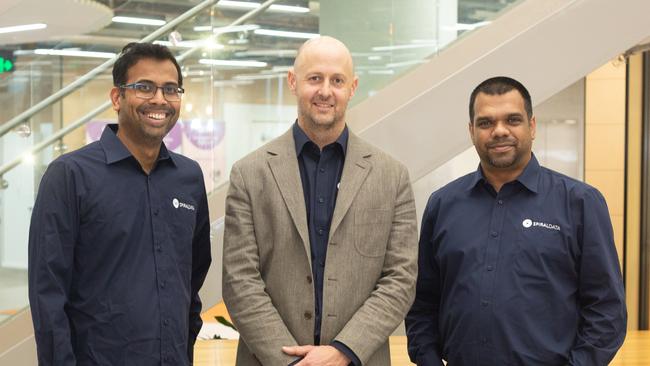
SpiralData is a SA-owned tech firm based in the Tonsley Innovation Precinct, which specialises in the application of artificial intelligence, machine learning (AIML) and big data.
Established in 2016, SpiralData has SA-based and interstate water utility and defence contracts and was recently the winner for “Sustainability” and a finalist in “AIML” in the AWS Innovation Awards for ANZ.
It uses a tailored process to get to the heart of how to use data to “drive significant impact in risk mitigation, operational efficiency, decision latency and resource management”.
With a team of dedicated data scientists, machine learning engineers and technologists, Spiral Data collaborates closely with large, asset-rich organisations in utilities, water and defence sectors.
They work with customers to deploy, test and retrain AI solutions in the field, evaluate their effectiveness and prove their impact into operational environments so they can begin enhancing decision-making “in the wild”.
Over the past five years they have evolved their IOT²AI platform across a myriad of complex use cases developing algorithms for predictive maintenance, leak detection, system “choke” prediction, valve optimisation and more.
Paladin Space
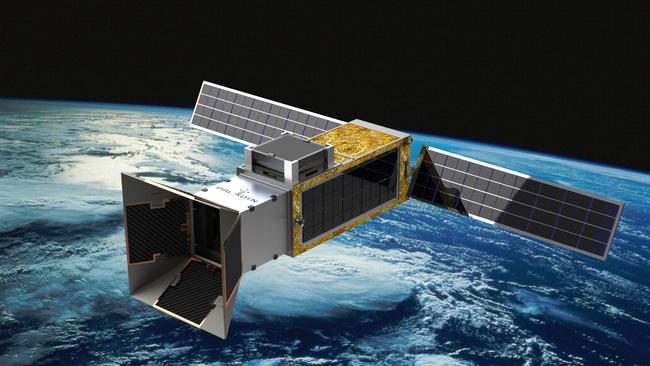
Paladin Space says it is building the world’s first satellite with a reusable method of capturing and removing fragmented space debris.
“Think Wall-E for space,” it says.
“With over 9000 tons of debris in orbit (and growing), human lives and satellites are at increasing risk of being struck by debris.
“A single collision can generate a cascading effect of numerous other collisions, potentially crippling the space infrastructure that we rely on so heavily here on Earth.
“Paladin Space is on a mission to clean up our space environment through the use of sustainable technology, making space safer for everyone.”
With investment from the South Australian government, a place on the Venture Catalyst Space incubator program, and letters of recommendation from Defence and space agencies, Paladin Space, which is founded by Harrison Box, is shooting to become a big name in sustainable space technology.
Robinson Aerospace
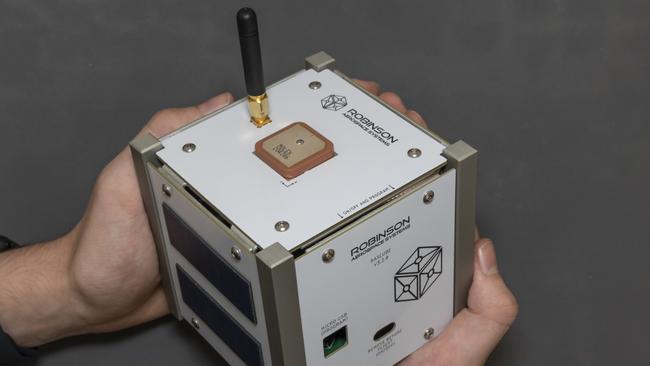
Robinson Aerospace’s mission is to educate students on space technology, while ultimately inspiring them to pursue careers in Australia’s rapidly growing space industry.
For this, the start up, founded by Edward Robinson, has developed RASCube, an educational satellite kit designed to look, feel, function and assemble just like a real CubeSat, but not go into space.
Students start by assembling RASCube like a real satellite, then they can run various experiments, analyse data and create their own unique add-ons.
In 18 months Robinson Aerospace developed RASCube education kits, delivered its first batch of satellites to schools, completed its pilot program and has begun developing a satellite that will take educational experiments into space in 2024.
The start up was also part of the Venture Catalyst Space (VCS) program run by the University of South Australia’s Innovation & Collaboration Centre (ICC) and the state government’s Space Innovation Fund.
AICRAFT

AICRAFT designs and manufactures low-power smart computing systems with artificial intelligence (AI) and machine learning capability for space and industrial applications.
The company says the products enable real-time big data processing for immediate decision making, longer operational uptime and extended system lifespan than what is currently available on the market.
This allows high performance computing levels to be achieved in a compact form on-board platforms rather than with ground infrastructure, according to chief executive Dr Tony Scoleri.
AICRAFT aims to assist customers with the implementation of edge computing solutions for their business case, typically remote unattended operations in possibly GPS-denied environments.
This smart computing technology can be integrated in optical and telecommunication systems, navigation and control systems, AI-driven power control units and more.
Deep Liquid

Deep Liquid uses AI to create original drinks and aims to enhance customer selection choices.
Co-founder Denham D’Silva says it has signed a contract to launch a range of Isotonic sports drinks and ice teas to X-Convenience that will integrate with its AI bar to provide personalised choices.
The customer will be able to purchase cans of these beverages, and by reviewing the flavours, an AI Bar located in the store will be able to create a personalised flavour for the customer on demand.
The products are scheduled for launch in January 2024 at selected stores, before a statewide rollout, he says.
D’Silva is founder of Barossa Valley Brewing, which is the first brewery to use Deep Liquid’s AI technology to help prepare its beers.
In the three years since the brewery started using AI, it has won the title for champion state brewery in either national or state competition for consecutive years.
It has been chosen by SXSW to participate at SXSW Startup village, being held in Sydney this month.
TEAM 3
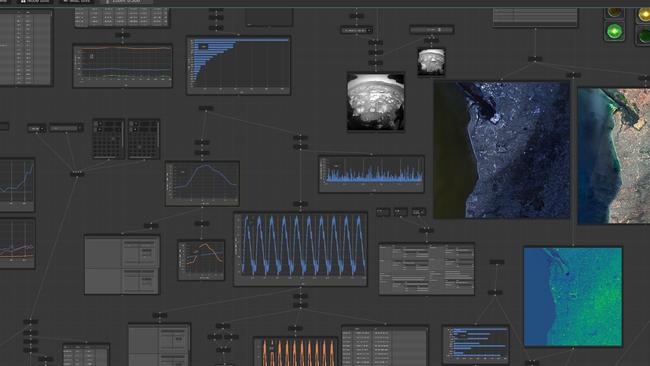
Team 3 is a deep-tech start up whose main product is a mission orchestration platform called DISA, an acronym for “Data Intelligence, Search & Analysis”.
The platform allows deployment of different algorithms, predictive technologies and machine-learning models.
Its target markets are Defence and Space, in particular areas of data discovery, collection and analysis.
The start up says DISA enables the “creation of a process mesh that is tactically survivable, resistant to various forms of degradation and can work in denied environments”.
“Its main strengths are flexibility of deployment, reconfiguration of the mission on the fly, speed and ease of integration with other systems.
“Compartmentalised and decentralised design allow execution of complex multi-path information graphs. Real-time architecture enables its users to achieve the time and knowledge dominance they seek.”
SCALE UPS
TABOO
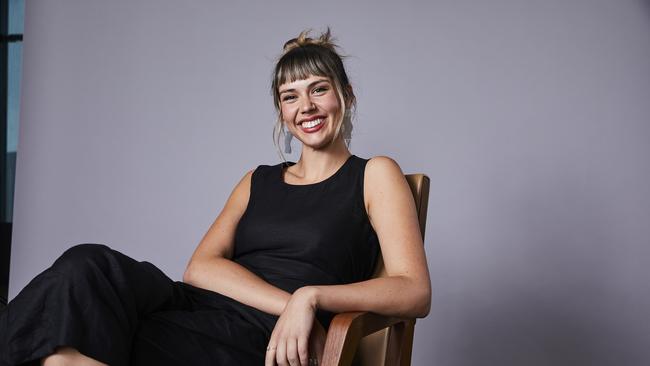
TABOO Period Products, a female founded social enterprise selling period care in Australia, has just celebrated its fourth year of trade.
The company sells certified organic cotton pads and tampons, online, through a subscription model, and in store with retailers OTR, National Pharmacies, Foodland, and Drakes.
Over the past 12 months, TABOO has been emphasising the opportunity for other organisations to also procure product for their staff, campaigning that, wherever there is toilet paper there should also be period products.
In partnership with Black Sheep Advertising, the launch of the bloodyimportantconversation.com.au, a micro-site where employees can anonymously ask their boss for tampons, has seen the company embark on some exciting growth.
Through TABOO’s “Pad it Forward” program, the social enterprise has now donated more than 50,000 pads to communities at risk and is looking to “end period poverty” in Australia by 2030.
TCPinpoint

TCPinpoint is described as a cloud-based property management tool that simplifies tenancy deliveries for retail landlords, boosts team productivity, and promotes transparency.
By digitising processes and streamlining operations, TCPinpoint aims to address the inefficiencies and miscommunications prevalent in the property industry’s traditional practices.
Since 2018, TCPinpoint has been on a mission to transform retail tenancy delivery projects.
Their three key priorities for information management in 2023 are: streamlined business processes; improved data timeliness and accuracy; and, increased revenue through sales process optimisation.
With global IT spending on the rise and booming property markets, TCPinpoint has expanded its presence in Australia, New Zealand, the MENA region, and the USA, with plans to explore the Asian market in the near future.
TCPinpoint’s founder and chief executive, Rachel Kidwell, says their ability to meet the industry’s growing demands for scalability, digitisation, and speed through their cloud-based solution, aligns with the evolving needs of property professionals on a global scale.
MyVenue

MyVenue describes its business as helping stadiums and arenas sell more food and drinks faster.
The fully integrated cloud-based POS solution includes a native mobile ordering app, suite catering module, self-service kiosk technology, inventory management platform, and back office with real-time dashboards.
The company says that, since July 2022, the solution has enjoyed a 335 per cent increase in installations and is now used in 60-plus venues throughout Australia, USA, Canada, and the United Kingdom.
Current users include Hard Rock Stadium (Miami Dolphins, Miami F1), State Farm Stadium (Arizona Cardinals, 2023 Super Bowl), AT & T Stadium (Dallas Cowboys), Wrigley Field (Chicago Cubs), and Las Vegas’ latest worldwide sensation, the Sphere.
MyVenue was named the Emerging Exporter of the Year at the 60th Australian Export Awards and the Business & Industry Solution of the Year at the 2023 iAwards (SA).
Val. Ai
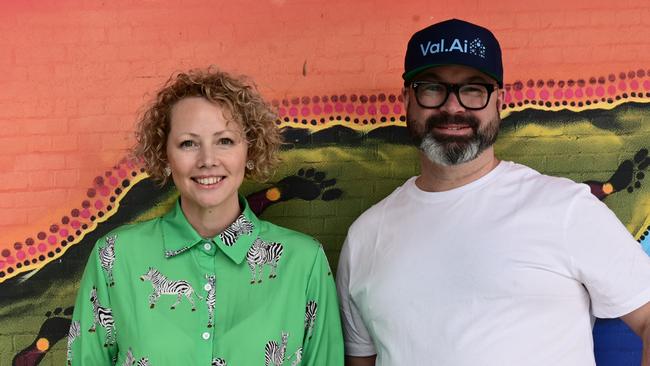
With advanced technology and a clear vision, Val. Ai is aiming to revolutionise the way people improve their homes, and save money.
The founding team are property valuer Tom Reed and climate advocate Allys Todd, who have represented the country at multiple global events including COP27 Egypt and London Tech Week and won multiple awards for their technology, including the Global Open Finance Challenge.
Val. Ai collaborates with global and national leaders in the financial, insurance, and property sectors to develop their data algorithms and digital platforms, triggering a shift towards sustainable improvements and home upgrades.
Their data insights and engagement platform delve deep into the heart of homes, unveiling vital insights into sustainability, energy consumption, and climate resilience.
Their aim is to elevate the sustainability, comfort, and resilience of one million Australian homes by 2030, which they say could result in more than $850m in energy bill savings.
Seed Terminator
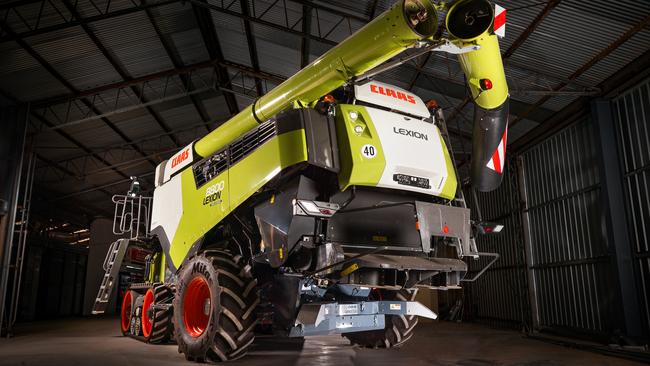
When it comes to helping farmers win the battle against weeds while reducing reliance on chemicals, you could well say one South Australian Company is crushing it.
Adelaide-based Seed Terminator produces a mechanical device of the same name, which pulverises weed seeds at the harvesting stage, before they can grow and run riot among crops.
The brainchild of the company’s co-founder, farmer and inventor Dr Nick Berry, the Seed Terminator tackles a problem inherent to crop farming: the fact the harvesting process is the weed’s best friend, because when the crop is cut, once the chaff and grain have been separated, the harvester flings the chaff back onto the ground.
This includes the seeds of weeds that have escaped or resisted the various stages of herbicide spraying.
In 2016, Australia’s Grain Research Development Council estimated that weeds cost Australian grain growers about $3.3 billion annually.
The first pilot Seed Terminators were introduced in 2016, and now there are some 750 machines in operation worldwide.
They now also work with Export SA, Accelerating Commercialisation, UniSA Australian Centre for Business Growth and were involved with Tonsley NVI in 2018-2020.
Equatorial Launch Australia
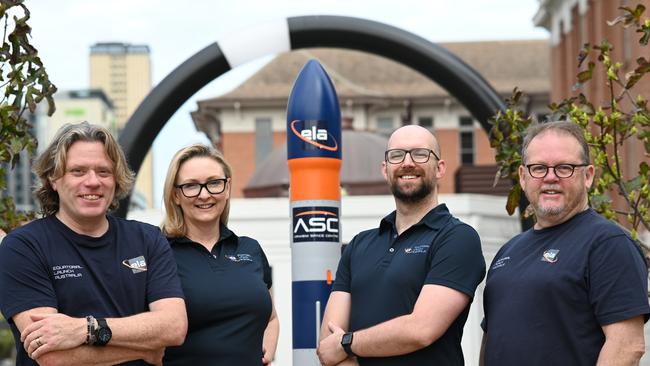
Lot Fourteen headquartered Equatorial Launch Australia owns and operates Australia’s leading commercial spaceport, the Arnhem Space Centre, located at 12deg South of the equator, in East Arnhem Land.
In 2022 ELA made history by successfully launching three suborbital rockets with NASA in Australia’s first ever commercial space launches.
Attention has now turned to attracting more international rocket companies to the site to set up as “resident launchers” – rocket companies who base themselves at ELA’s spaceport for the duration of their multi-year, multi-launch campaigns.
This company described this model as “globally unique”, allowing ELA to leverage shared services and reduce launch costs for its customers.
Earlier this year ELA announced South Korean-based rocket company, INNOSPACE, would become its first resident launcher and is set to start launches from the spaceport from mid-2025.
PREPD
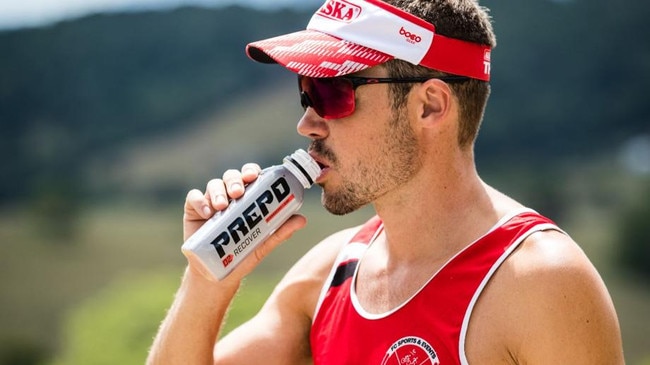
PREPD was born out of 25 years of collaborative research between Flinders and Yale Universities, pioneering advancements in improved fluid absorption.
Utilising its patented sustained fibre, PREPD says it unlocks up to an additional 5L fluid reserve located in the large bowel.
After achieving success and adoption in many sports disciplines, PREPD is expanding its horizons into the mining and construction industries with a new product called “Safety”.
The company says dehydration plays a major role in children’s ability to concentrate, hence the launch of another new product called Advantage+ into the education sector.
It describes all as “simply a healthy liquid breakfast”.
CareApp
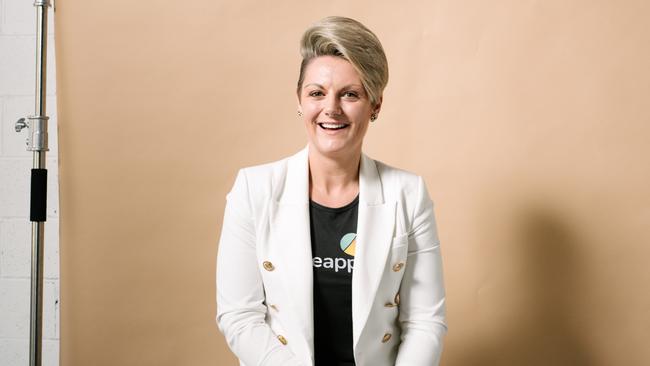
Transitioning a loved one into care can be tough; ‘Will Mum like it here?’ is a common worry, says Allison Nikula, CareApp’s chief executive and founder, who is on a mission to remove those very fears.
“The truth is, what I call ‘Beautiful Care’ is provided every day, right across Australia. But it often goes unseen,” she says.
“When families ‘hand over the reins’ they become dependent on communication from their provider. This is where CareApp comes in.”
In a similar way to how schools and childcare providers use communication apps for keeping parents up to date, CareApp enables care providers to share photos, video/audio, as well as notices, events, and newsletters, and even video chat, Ms Nikula says.
The multi-award winning platform supports more than 200 care providers around Australia.
“Importantly, both families AND care providers love CareApp,” Ms Nikula says.
“When communication is frequent, open, and positive, everyone feels confident.”
Lateral Vision
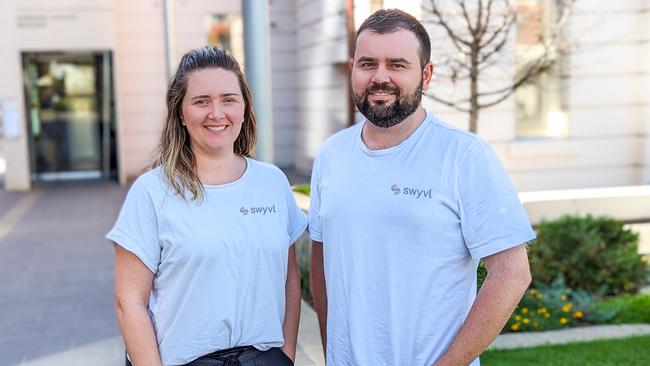
Lateral Vision, co-founded by the sibling duo, Alex and Laura, is taking a leap into the world of product-based business with Swyvl, their B2B SaaS platform.
Swyvl is an-changing AI-powered mapping tool designed to simplify the integration of spatial data and 3D maps for users across various industries
After years of hands-on experience in the service sector, the team at Lateral Vision recognised a need for a user-friendly solution that streamlined the creation, management, and sharing of 3D maps and spaces.
“Swyvl is set to revolutionise the way businesses interact with spatial data, providing a seamless and intuitive platform for enhancing decision-making, planning, and visualisation,” the company says.
“With Lateral Vision’s deep-rooted expertise and Swyvl’s cutting-edge technology, the future of spatial mapping is being built here in Adelaide.”
Tic: Toc
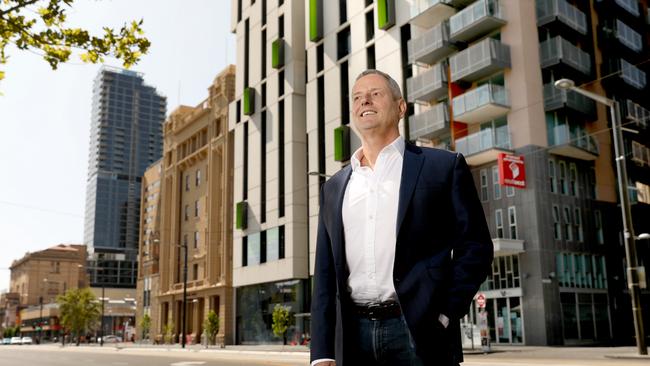
Tic: Toc is a platform technology company specialising in making financial assessment processes more efficient, cost-effective and responsible through data automation and artificial intelligence.
Tic: Toc launched as The World’s First Instant Home Loan® in 2017 with a vision to change the way Australians fulfil their home loan.
Since then, Tic: Toc has grown to become a 150-person company headquartered in Adelaide.
Tic: Toc’s platform technology is now utilised across multiple use cases and touches 3 per cent of the home loan market, the business says.
Its customers include two of Australia’s major banks, ASX Top 100 companies, fintechs, brokers, as well as its own in-house retail business, Tic: Toc Home Loans.
MyGigsters

Post-Covid gig economy in Australia marked the highest influx of gig workers, including essential delivery drivers.
Chief executive Benjemen Elengovan, who worked different gigs when he first moved to Australia, founded MyGigsters as what he described as “the need of the hour”.
He secured support from several government grants, Australian Venture Capitals and partnerships, and evolved it into an essential tax and auto bookkeeping tool, all in the form of a financial management app, MyGigsters.
They have since expanded their focus to encompass comprehensive income-expense management and tax solutions tailored for all self-employed and casual workers in Australia.
Their work so far has been featured in several state-based campaigns and national publications
eologix-ping
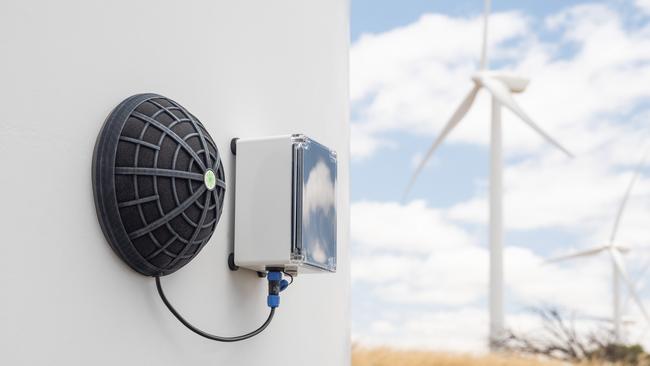
eologix-ping is a merger between Adelaide-based Ping Services and Austrian-based eologix.
The company says the combined technology of the eologix on-blade sensor system and Ping’s continuous acoustic monitoring system optimises maintenance, decreases repair costs and increases power generation by delivering a complete blade monitoring solution.
Ping’s monitor is mounted on the base of the wind turbine and detects changes in blade health and operation by measuring acoustic signals.
It can also monitor for lightning events (using magnetic fields) and ice build-up based on blade sound. Additionally, a monitor has been developed to sit inside the blade to listen for structural damage.
The eologix sensor sits directly on the outer surface of the blade and provides ice detection, temperature measurement and continuous pitch angle monitoring amongst other vibration-based measurements.
The combined product provides additional applications for blade fault and blade health detection as well as for monitoring and reporting along the entire life cycle of the wind turbine blade.




